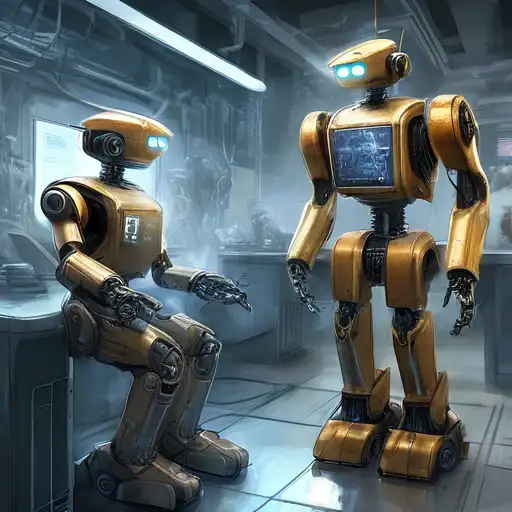The Moral Dilemmas of Autonomous Robots
In the rapidly evolving world of technology, autonomous robots have become a cornerstone of innovation. However, their rise brings forth complex ethical questions that society must address. This article delves into the moral implications of self-operating machines and the responsibilities they entail.
Understanding Autonomous Robots
Autonomous robots are machines capable of performing tasks without human intervention, powered by artificial intelligence (AI) and machine learning. From manufacturing to healthcare, their applications are vast, but so are the ethical concerns they raise.
Key Ethical Concerns
The deployment of autonomous robots introduces several moral dilemmas, including:
- Accountability: Who is responsible when an autonomous robot causes harm?
- Privacy: How do we protect individual privacy with robots capable of surveillance?
- Employment: What is the impact of robots on human jobs and livelihoods?
- Decision-making: Can robots make ethical decisions in life-and-death situations?
Accountability in the Age of Autonomy
One of the most pressing issues is determining accountability. Unlike traditional machines, autonomous robots can make decisions independently, blurring the lines of responsibility. This raises questions about legal frameworks and the need for new laws to address these challenges.
Privacy and Surveillance
With advancements in AI, autonomous robots can now collect and analyze vast amounts of data. This capability, while beneficial, poses significant privacy risks. Ensuring that these machines respect individual privacy rights is paramount.
The Future of Employment
The automation of tasks by robots has sparked debates about the future of human employment. While they can increase efficiency, the potential for job displacement cannot be ignored. Balancing technological advancement with social welfare is crucial.
Ethical Decision-Making
Perhaps the most complex issue is programming robots to make ethical decisions. Scenarios, such as self-driving cars choosing between two harmful outcomes, highlight the difficulties in encoding morality into machines.
Conclusion
The ethics of autonomous robots is a multifaceted issue that requires careful consideration. As we continue to integrate these machines into our lives, fostering a dialogue among technologists, ethicists, and policymakers is essential to navigate the moral landscape they present.
For further reading on related topics, explore our articles on Artificial Intelligence and Machine Learning.
